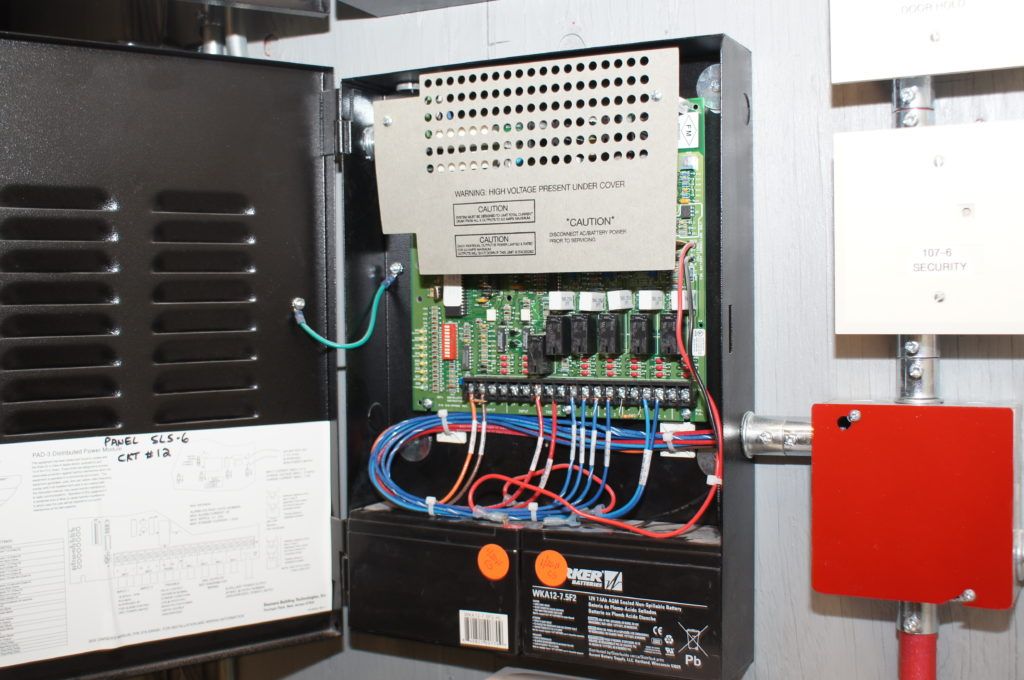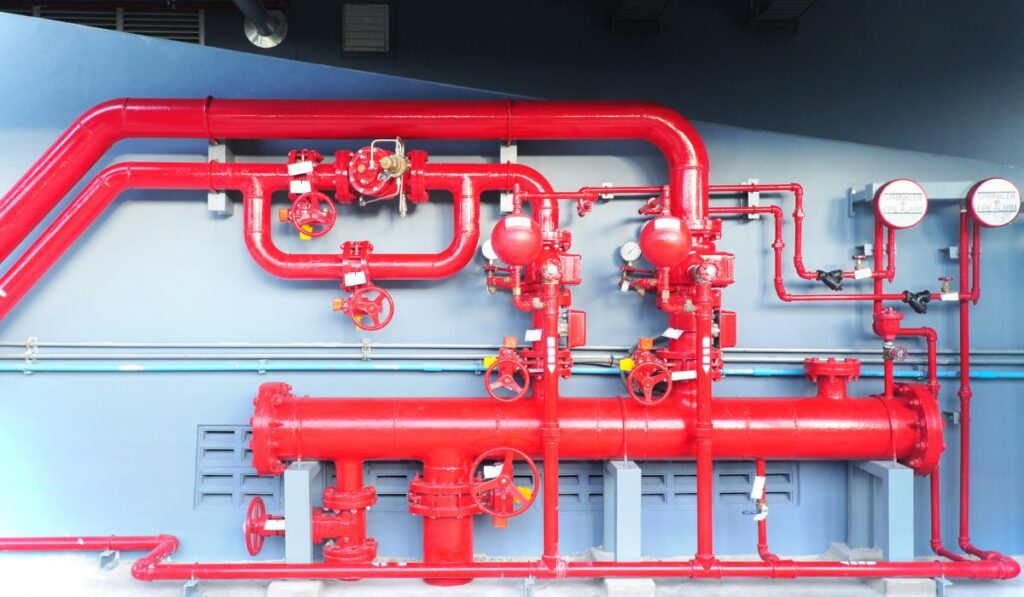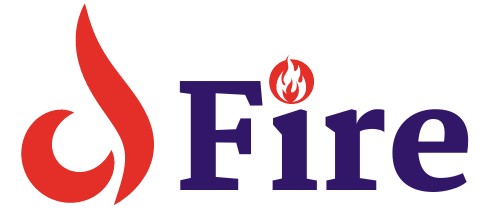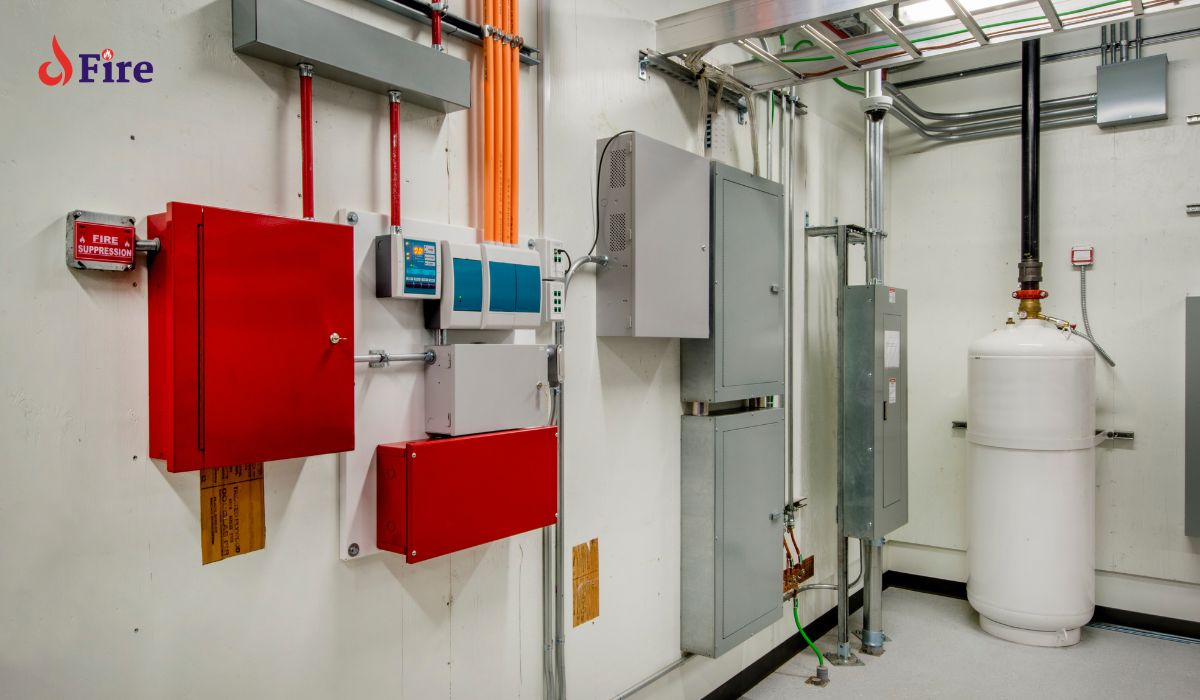Commercial fire detection systems are essential for early alerting in the event of a fire, safeguarding both property and lives. These systems provide real-time monitoring and are key to a robust fire safety strategy.
Effective fire detection technology forms the cornerstone of workplace safety, offering peace of mind through constant surveillance. These systems consist of various components, such as smoke detectors, heat sensors, manual call points, and alarms, designed to work in unison for prompt detection and notification.
The goal is to detect any signs of fire at the earliest possible stage, minimizing damage and allowing for quick evacuation and emergency response. By detecting temperature changes, smoke presence, or even flames directly, commercial fire detection systems enable businesses to address potential fires before they escalate. Regular maintenance and compliance with safety standards ensure these systems function optimally, making them indispensable for companies looking to protect their assets and personnel.

Credit: www.protechfireinc.ca
The Importance Of Fire Safety
Fire safety is crucial in any commercial environment. It’s not just about being prepared for the unexpected—it’s about actively preventing disasters. Every business owner knows the devastation a fire can cause, not only to the infrastructure but also to the lives involved. Thus, installing a top-notch commercial fire detection system isn’t an option; it’s a necessity.
Fire Statistics And Potential Damage
Understanding the risks helps in valuing fire safety. Let’s look at some sobering fire statistics:
- Commercial fires lead to billions in property damage annually.
- On average, a business fire disrupts operations for at least 24 hours.
- Lives, jobs, and invaluable data can be lost in minutes.
| Aspect | Statistics |
|---|---|
| Property Damage | $ billions |
| Business Disruption | 24+ hours |
| Lives Affected | Directly & Indirectly |
Legal Requirements For Fire Safety
Legal compliance is not just a formality; it’s a lifesaver. Here’s what every business must follow:
- Install certified fire detection systems.
- Regularly maintain and test equipment.
- Comply with local fire safety regulations.
Failure to comply can lead to severe penalties. These may include heavy fines and possible business closure. The law aims to protect everyone. Thus, complying is in everyone’s best interest. A commercial fire detection system is the first line of defense against potential catastrophes.

Credit: sheaelectricllc.com
Types Of Fire Detection Systems
Fire detection systems are crucial for the safety of commercial properties. They provide an early warning of a potential fire, allowing for swift evacuation and action. Different types of detectors suit varied environments and specific risks. Understanding these systems ensures the right choice for optimum protection.
Smoke Detectors: Ionization Vs. Photoelectric
Smoke detectors come mainly in two types: ionization and photoelectric. Each works differently to sense smoke.
- Ionization smoke detectors are quick to react to flaming fires with small smoke particles.
- Photoelectric smoke detectors excel in detecting smoldering fires, producing larger smoke particles.
Choose based on the area’s fire risk type. Some places might need both.
Heat Detectors and Their Applications
Heat Detectors And Their Applications
Heat detectors respond to temperature changes. They are less sensitive than smoke detectors but effective where smoke alarms may falsely trigger.
- Garages and kitchens often use them.
- Rate-of-rise and fixed temperature are two main types.
Flame Detectors: Advanced Solutions
Flame Detectors: Advanced Solutions
Flame detectors offer high-tech protection in areas with high fire risk. They sense specific light frequencies from flames, leading to a rapid response.
- Suitable for industrial spaces and areas storing flammable materials.
- They work well for fast flame identification.
Aspirating Smoke Detection: High Sensitivity in Critical Areas
Aspirating Smoke Detection: High Sensitivity In Critical Areas
Aspirating smoke detectors provide the earliest possible warning. Their high sensitivity makes them ideal for critical areas.
- They take air samples and analyze them for traces of smoke.
- Perfect for data centers, historical buildings, and cleanrooms.
Manual Vs. Automatic Systems
Understanding the difference between manual and automatic fire detection systems is critical for business safety. Both systems offer unique benefits and challenges. Businesses must choose the right system to protect their assets, employees, and customers.
Pros And Cons Of Manual Alarm Systems
Manual fire detection systems require human action to activate. Someone must pull a lever or press a button when they see a fire. This type of system is simple and often lower in cost. But, it depends on people being present and reacting quickly.
Pros:
- Lower installation costs
- Simple to use and understand
- Effective in small, controlled areas
Cons:
- Dependent on human presence and reaction
- Slower response time in an emergency
- No automatic alerts to the fire department
Advantages Of Automatic Detection For Business
Automatic fire detection systems use sensors to spot fires. These don’t need people to start working. They react fast, alert authorities, and can save lives and property. This is crucial for large spaces and when people are not always around.
Advantages:
- Rapid detection and notification of fire
- No reliance on human presence or action
- Ability to operate 24/7, enhancing overall safety
- Often connected to sprinkler systems for immediate response
Sensors in these systems detect smoke, heat, or flames. They trigger alarms that alert people and the fire brigade. Some systems directly link to sprinkler systems or fire containment measures. They work around the clock, giving them peace of mind.
Key Features Of Commercial Fire Alarms
Understanding the key features of commercial fire alarms is crucial for safety. These systems do more than just sound an alarm; they offer sophisticated functions to protect people and property. In this section, we’ll explore the top attributes of these lifesaving devices that every business should consider.
Integration With Building Management Systems
Modern fire alarms work seamlessly with building management systems. This integration enables central control, which helps in quick response during emergencies. Here are some pivotal elements:
- Central Monitoring: Allows for the observation of all fire detection devices in one place.
- Automated Responses: Systems can initiate lockdowns or activate sprinklers when fire is detected.
- Energy Management: Adjusts the building’s HVAC system to prevent smoke spread.
Alarm Notification Methods
Different alarm notification methods ensure that everyone is promptly alerted. Some of these methods include:
| Method | Description |
|---|---|
| Audio Alarms: | Loud sirens or pre-recorded messages inform of danger. |
| Visual Alarms: | Flashing lights guide towards exits, useful in noisy environments. |
| Text Alerts: | SMS or emails sent to designated personnel or occupants. |
Maintenance Features
Reliable maintenance ensures fire alarms remain in working order. Significant maintenance features include:
- Self-Diagnostics: Systems regularly check their functionality and report issues.
- Remote Access: Technicians monitor and address problems from off-site locations.
- Event Logs: Record of incidents and maintenance history for review and compliance.
Compliance With Codes And Standards
Compliance is non-negotiable for commercial fire detection systems. They match the following criteria:
- Local Codes: Adhering to codes specific to the area where the building is located.
- National Standards: Following widely recognized safety standards like NFPA 72.
- Regular Testing: Conducting routine tests to meet inspection requirements.
Choosing The Right System For Your Business
Fire detection systems are crucial for any business. They protect lives and assets. Businesses differ, and so do their needs for fire detection. It’s important to pick a system fit fits your specific business. This process involves understanding risks, seeking professional advice, and considering costs.
Assessing Your Fire Risk
Knowing your fire risk is step one. You must evaluate what you’re protecting. Different businesses have varying risks. For example, a restaurant has different risks compared to a bookstore. Your choice should match the risk level.
- Identify flammable materials
- Check for electrical hazards
- Review the building layout
Consulting Fire Safety Professionals
Experts can guide you. They know fire safety rules and can suggest the best system.
A professional assessment ensures compliance with local laws. A pro looks at your space and recommends the perfect fit.
Considering Installation And Operating Costs
Costs are more than just buying the system. They include installation and maintenance over time. Think about the total cost of ownership.
| Cost Type | Details |
|---|---|
| Installation | The upfront cost to install the system. |
| Maintenance | Regular checks and repairs. |
| Operation | Day-to-day costs of running the system. |
Choose a system that’s affordable to operate in the long run. Value quality and efficiency to save money.
Innovations In Fire Detection Technology

Keeping up with advancements in fire detection is key for safety. New technologies are making systems smarter and more efficient. Let’s explore some cutting-edge innovations that are reshaping commercial fire detection.
Smart Alarms And Iot Integration
Smart alarms transform fire detection. They communicate through the Internet of Things (IoT). This allows for real-time alerts, wherever you are. Look at how they’re changing the game:
- Multifunctional sensors detect smoke, heat, and carbon monoxide.
- Remote monitoring through mobile apps keeps you informed.
- Instant notifications to emergency services shorten response times.
Wireless Systems For Flexibility And Easy Installation
Wireless systems offer a solution without messy cables. These are the benefits:
- Fast installation without drilling or permanent wiring.
- Easy to move and reconfigure for changing spaces.
- Battery-powered units ensure protection during power outages.
Machine Learning For Predictive Analytics
Machine learning takes fire detection further. It can predict hazards before they happen. Key points include:
| Feature | Advantage |
|---|---|
| Pattern recognition | Finds potential risks early. |
| Anomaly detection | Alerts to unusual heat or smoke levels. |
| Historical data analysis | Improves system responses over time. |
The Importance Of Regular Maintenance And Testing
Regular maintenance and testing are pivotal for the reliability of commercial fire detection systems. These systems act as early warning mechanisms during a fire, protecting both lives and property. Without routine checks, the efficacy of these systems may wane, potentially endangering all occupants in the event of a fire. This section delves into why maintaining and testing your fire detection system is a crucial safety measure.
Scheduling Routine Inspections
Establishing a regular inspection schedule ensures that your fire detection systems are in top working order. Experts should perform inspections semi-annually as a standard practice. During these inspections, each component of your system is reviewed for performance and durability, including:
- Sensors and detectors
- Control panels
- Manual call points
- Alarm signaling devices
These checks can spot potential faults before they turn into significant issues.
Compliance Audits And Keeping Records
Compliance audits are necessary to ensure systems meet local fire safety regulations. Records of inspections, maintenance, and any repairs should be meticulously maintained. This documentation is essential for:
- Demonstrating compliance with safety authorities
- Facilitating future maintenance
- Guiding quick resolutions during unexpected malfunctions
Accurate records might be required for insurance purposes or legal matters after a fire incident.
Training Your Staff On System Operation
Training is key to effective emergency response. Staff should understand:
- System components and functions
- Procedures for reporting a fire
- Steps to take in case of false alarms
Well-informed staff can act quickly and prevent damage.
Navigating The Aftermath Of A Fire Incident
Navigating the aftermath of a fire incident can be a daunting task for any business. Quick and efficient action is essential to minimize damage and ensure the safety of all personnel. In the crucial hours following a fire, understanding the steps to take can help prevent further loss and start the road to recovery.
Immediate Steps After Detection
A swift response can make a significant difference after a commercial fire. Once the fire detection system alarms, ensure employee safety first. Follow your emergency plan and assess the situation. Then, contact emergency services and your insurance company.
- Evacuate the premises immediately.
- Assess any injuries or hazards.
- Notify the fire department even if the fire seems small.
- Inform the building’s management or neighbors.
- Secure the property to prevent further damage or theft.
Post-fire Restoration And System Reassessment
After the fire is extinguished, focus on restoration and system reassessment. This will involve professional cleaning and potential structural repairs. It’s crucial to engage experienced restoration services for a comprehensive approach. Moreover, reassess and upgrade the fire detection system to ensure future safety.
- Start with a damage assessment.
- Initiate clean-up and debris removal.
- Repair and restore physical infrastructure.
- Review and upgrade fire detection systems.
Learning And Upgrading From Past Incidents
Every fire incident provides valuable lessons. Use this opportunity to analyze what happened and how your systems responded. Investigate the cause of the fire and evaluate the effectiveness of your detection system. This will help in upgrading your defense against future incidents.
| Aspect | Action |
|---|---|
| Fire cause analysis | Identify the source and prevent similar risks. |
| System evaluation | Assess performance and pinpoint improvements. |
| Upgrade plan | Implement advanced fire detection solutions. |
Case Studies Of Effective Fire Detection
Understanding effective fire detection systems is crucial for businesses. Case studies from around the world provide insights into the success of these systems. By examining these examples, businesses can learn how to protect their assets and people.
The Role Of Detection In Mitigating Large-scale Fires
Advanced fire detection plays a key role in preventing disasters. Real-world cases reveal the impact of early fire detection on large-scale scenarios. Fast-acting systems can mean the difference between minor damage and a devastating blaze.
- A shopping mall in Asia installed state-of-the-art detectors. Their quick response prevented a major fire.
- A European hotel equipped with smart detection systems was able to evacuate guests before the fire spread.
Small And Medium Enterprises: Tailored Alarm Solutions
For small and medium businesses, custom fire alarm solutions are critical. They provide protection without overwhelming resources. Each case underscores the necessity of personalized alarm systems.
- A family-owned restaurant in North America installed a kitchen-specific fire alarm which saved their business.
- An IT startup in Africa used a wireless alarm mesh, which secured their tech equipment effectively in a fire.
Lessons From Historical Fire Catastrophes
Historical fires have taught priceless lessons in fire safety. Some past events highlight the importance of robust detection systems. Learning from these tragedies has led to improved modern standards and practices.
| Fire Incident | Year | Outcome |
|---|---|---|
| The Great Chicago Fire | 1871 | Improved building codes and fire detection policies |
| The Triangle Shirtwaist Factory Fire | 1911 | Stringent labor laws and safety measures enforced |
Frequently Asked Questions Of Commercial Fire Detection Systems
What Are Commercial Fire Detection Systems?
Commercial fire detection systems are installed in buildings to identify and alert occupants of fires, facilitating timely evacuation and fire-fighting responses.
How Do Fire Detection Systems Work?
Fire detection systems work by monitoring environmental changes associated with combustion, such as smoke or heat presence, and then sounding an alarm.
Why Install Fire Detection In Businesses?
Installing fire detection systems in businesses ensures early warning of fires, protecting lives, and property, and mitigating potential business disruptions.
What Types Of Fire Detectors Are There?
There are multiple types of fire detectors, including smoke, heat, and carbon monoxide detectors, each designed to recognize specific indicators of fire.
Can Fire Detection Systems Be Integrated?
Yes, many fire detection systems can be integrated with building management systems for streamlined safety operations and emergency response protocols.
Are Commercial Fire Systems Mandatory?
In most regions, commercial fire systems are mandatory and must comply with local fire safety codes and standards to ensure the safety of occupants.
Conclusion
Safety in commercial spaces is non-negotiable. Fire detection systems stand as critical shields against potential disasters. Investing in advanced fire alarms secures assets and, importantly, saves lives. Remember, the right system does more than protect—it offers peace of mind. Act now to safeguard your enterprise’s future.

I’m Abdus Sobur, a highly skilled and professional Fire Safety Officer with a passion for safeguarding lives and property. Over the course of my career, I’ve conducted numerous successful fire safety audits, earning a reputation for excellence in ensuring public safety.
In addition to my role as a Fire Safety Officer, I’m also dedicated to raising awareness about the importance of fire safety. Through my blog, I share insights into the functions of different fire safety equipment, aiming to empower individuals with the knowledge they need to protect themselves and their communities.
I’m driven by a deep commitment to promoting fire safety awareness and preventing fire-related incidents.

